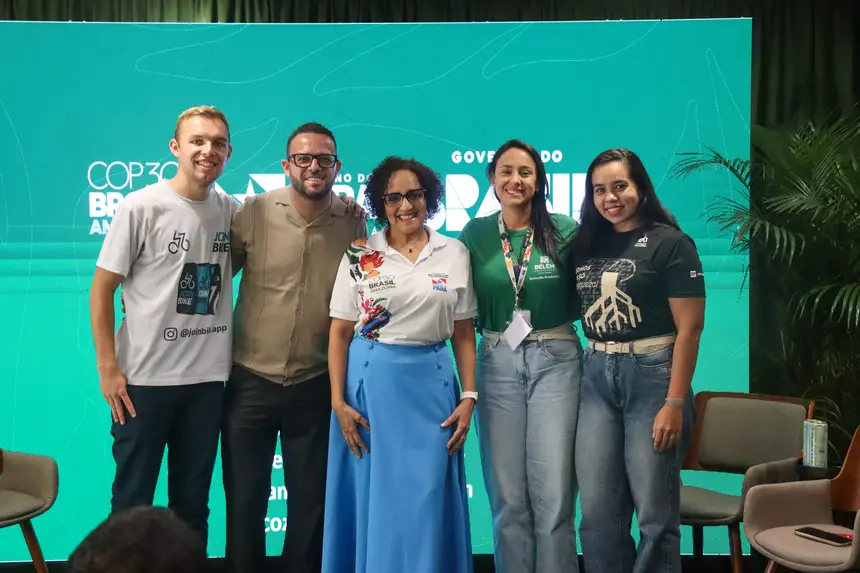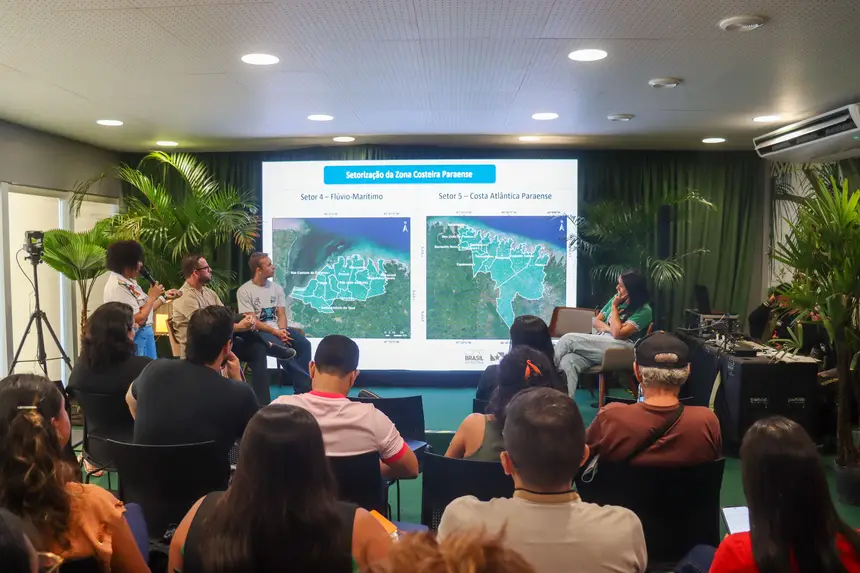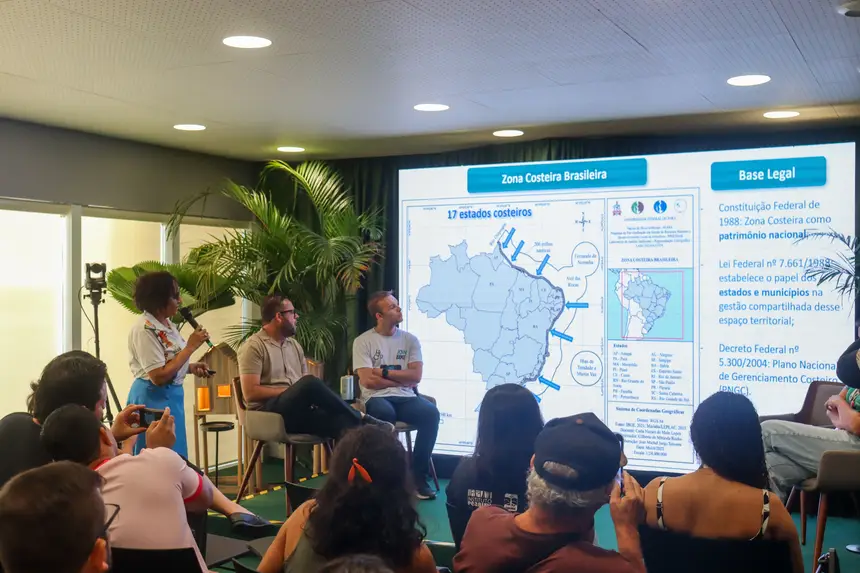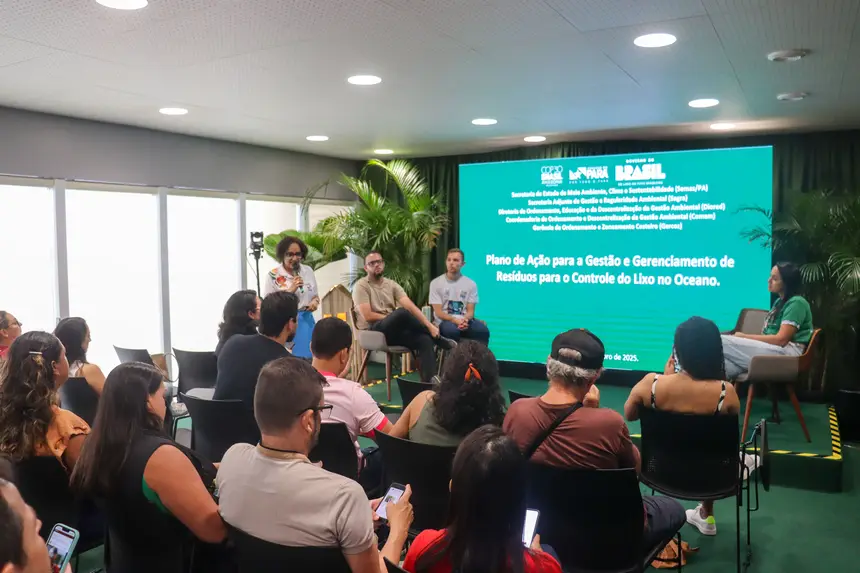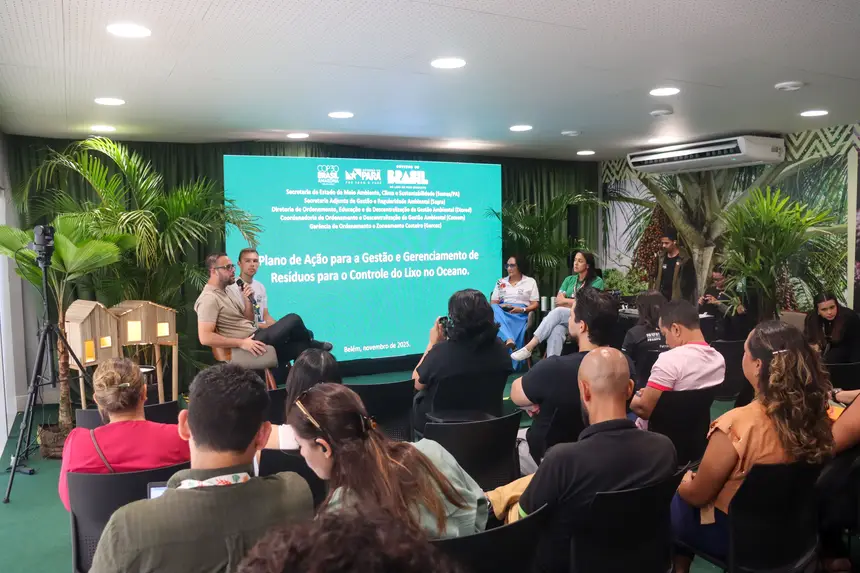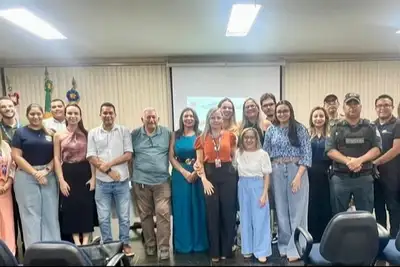Social technology of EcoBarriers boosts the fight against waste in rivers and brings discussion to COP30
Panel at the Pará Pavilion shows how simple technology, integrated management, and community participation are transforming urban cleaning and river protection, removing tons of waste from the waters
The fight against waste in rivers and the protection of these ecosystems were at the center of discussions at the panel "Eco Barrier in Rivers – EcoBarriers Project," held on Saturday (15) in the Green Zone of COP30, at the Pará Pavilion, room Miritizeiro. The meeting brought together public managers, specialists, and representatives of social initiatives to present joint strategies to combat water pollution. The Secretary of Environment, Climate and Sustainability (SEMAS) was represented by environmental analyst Iolene Azevedo, who highlighted the advances and challenges in integrated waste management for controlling waste in the Ocean.
Social technology and institutional unity drive EcoBarriers
The founder of the project, Diego Saldanha, opened the panel emphasizing that the expansion of EcoBarriers depends on the articulation between society, public power, and private initiative. The model, already replicated in several states, operates with simple structures installed in urban channels to retain solid waste before it reaches the rivers. "For the project to expand, it needs people with willingness and the union between private initiative and public power. When these two sides walk together, things really happen," emphasized Diego.
With regular operation, the structure already shows significant impact in retaining waste. "In the works of the Tamandaré linear park, carried out by the Government of Pará, one of the EcoBarriers was installed in partnership with the city hall of Belém. The installed eco-barrier is already removing more than 400 kilograms of waste per week. This shows how simple solutions, when supported, generate real impact," concluded Saldanha.
Advances in urban cleaning and productive inclusion in Belém
Today, the reorganization of municipal solid waste policies focuses on valuing workers and recovering degraded areas. According to the panelist and representative of the department in Belém, Pâmela Massoud, the city is undergoing a transformation led by teams previously dedicated exclusively to urban cleaning.
"We took on the mission of reorganizing waste management in Belém and transforming former urban cleaning workers into environmental educators. Today, they are the protagonists of the change we want to see in the city," clarified Pâmela.
Integrated management with actions and learnings
Representing the Government of Pará, environmental analyst Iolene Azevedo from SEMAS reinforced that the fight against waste in rivers and the impact on the coastal zone requires coordination between different levels of government, in addition to the active participation of the population. An important link to show that the impacts of this initiative need to be chain-wide, relying on the cooperation of various agents and across multiple fronts.
"Coastal management is integrated, shared, and participatory. By nature, it only works with the union between states, municipalities, and the population working together. Each one has an essential role in reducing the waste that reaches the ocean," said Iolene.
When one deeply understands the local reality, participatory diagnosis becomes easier, which is the first step for any serious action in waste management. The analyst highlighted that "the action plan developed by SEMAS can be replicated in different municipalities along the Pará coast, strengthening local capacity to tackle waste and focusing on strengthening local management, reducing impacts, and directly benefiting the population."
The experience of EcoBarriers, integrated with state and municipal policies, was presented as an example of how simple initiatives, when supported by planning and institutional cooperation, generate direct impact on the environment and the quality of life of the population.
Text Lucas Maciel – ASCOM SEMAS


